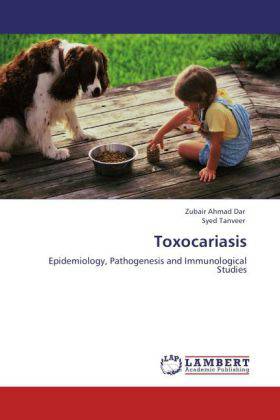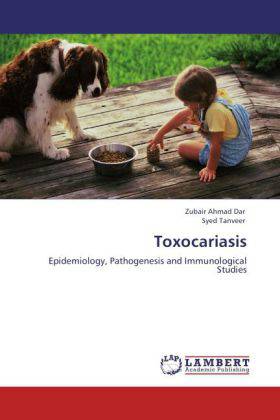
- Afhalen na 1 uur in een winkel met voorraad
- Gratis thuislevering in België vanaf € 30
- Ruim aanbod met 7 miljoen producten
- Afhalen na 1 uur in een winkel met voorraad
- Gratis thuislevering in België vanaf € 30
- Ruim aanbod met 7 miljoen producten
Zoeken
Toxocariasis
Epidemiology, Pathogenesis and Immunological Studies
Zubair Ahmad Dar, Syed Tanveer
Paperback | Engels
€ 67,45
+ 134 punten
Omschrijving
Toxocariasis is a public health problem. Man acts as an unnatural host in which Toxocara larvae does not develop but migrate and survive for a long time. The mode of transmission to humans is by oral ingestion of infective Toxocara eggs from contaminated soil (sapro-zoonoses), unwashed hands or consumption of raw vegetables. Some infections may occur from ingestion of larvae in undercooked organs and muscle tissues of infected paratenic hosts such as chickens, cattle and sheep. Transmission to the second generation is theoretically possible by infective larvae of canine ascarid nematode Toxocara canis, a ubiquitous parasite of dogs in temperate and warm climates. This book give a brief overview of Toxocariasis and presents a detailed study of the zoonotic disease in human populations of the valley of Kashmir.
Specificaties
Betrokkenen
- Auteur(s):
- Uitgeverij:
Inhoud
- Aantal bladzijden:
- 188
- Taal:
- Engels
Eigenschappen
- Productcode (EAN):
- 9783847338970
- Verschijningsdatum:
- 6/01/2012
- Uitvoering:
- Paperback
- Formaat:
- Trade paperback (VS)
- Afmetingen:
- 152 mm x 229 mm
- Gewicht:
- 281 g

Alleen bij Standaard Boekhandel
+ 134 punten op je klantenkaart van Standaard Boekhandel
Beoordelingen
We publiceren alleen reviews die voldoen aan de voorwaarden voor reviews. Bekijk onze voorwaarden voor reviews.











